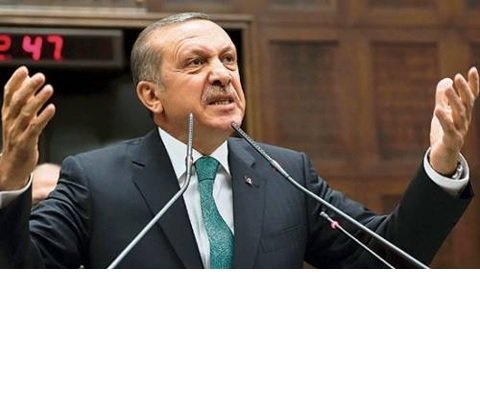The Turkish lira plunged on Sunday night, immediately after the re-opening of major foreign exchange markets, after President Tayyip Erdogan sacked the country’s hawkish central bank governor, replacing him with a critic of high interest rates.
As markets opened, Turkey’s lira plunged 15 per cent to near its all-time low in reaction to President Tayyip Erdogan’s removal of Governor Naci Agbal over the weekend.
The lira is currently at 9.59 to the euro, 805 to the dollar, 11.16 to the pound. The Turkish currency has lost half its value since the 2018 currency crisis.
“The lira is being smashed by investors fearing that the custodian of its value does not share their hopes for a stable currency underpinned by positive real interest rates,” Westpac senior currency strategist Sean Callow told Invest.com, adding that the lira may not yet have found a bottom.
“The real test will be when the volume comes in in Europe,” he said.
Goldman Sachs (NYSE:GS) and others forecast a sharp dive in the lira and Turkish assets given the new governor’s dovish and even unorthodox views, and what was seen as the latest damage to the bank’s credibility amid years of policy interference that has dogged the major emerging market economy.
Cristian Maggio, a strategist at TD Securities, predicted a further 10 to 15 per cent lira depreciation in the week ahead.
In a statement released to international bankers, Kavcioglu hinted at inteest rate cuts, while maintaining that a decline in inflation would follow.
He said: “The Central Bank of the Republic of Turkey, duties and powers within the framework established by Law in line with the fundamental objective of achieving lasting decline in inflation will continue to use monetary policy tools in an effective manner.
While the decline in inflation will positively affect macroeconomic stability through the decline in country risk premiums and permanent improvement in financing costs, it will also contribute to the creation of the necessary conditions for sustainable growth that will increase investment, production, exports and employment.”
He added that policy meetings will remain on a monthly schedule, suggesting any rate cuts may wait until the next planned meeting on April 15.
‘Bad as Brexit’
The outgoing governor, Naci Agbal, who was appointed in November, had restarted the flow of foreign investment to Turkey by aggressively raising the key interest rate first to 17 per cent and then to 19 per cent, making Turkish rates the highest of any major economy.
When Agbal raised rates to 19 per cent on March 19, Erdoğan immediately replaced him with Kavcioglu, a former member of parliament for his ruling AK party. There can be no doubt that the decision was made by Erdogan personally, as the news was announced in a presidential decree.
Tim Ash, senior emerging markets sovereign strategist at Bluebay Asset Management, said: “This decision is almost as bad as Brexit in terms of being the worst public policy decision I can remember in a country’s history. “Markets will express their opinions on Monday and it is likely to be an ugly reaction.”
Erdogan’s ‘economic reforms’ are smoke and mirrors – analysts
Last month, Erdogan announced a series of ‘economic reforms,’ but analysts say that they are devoid of substance.
“Although the latest programme highlights Turkey’s serious economic problems such as accelerating inflation, the lack of transparency in public institutions, increasing unemployment and a widening current account deficit, it contains nothing more than promises that lack any substance,” writes economist Guldem Atabay.
“Since Erdoğan’s announcement of the programme, Turkish columnists and analysts have penned a series of quality analyses highlighting its insufficiencies, including how some of its content appeared to have been copied and pasted from a previous programme announced in 2015 under former Prime Minister Ahmet Davutoğlu.”






Click here to change your cookie preferences